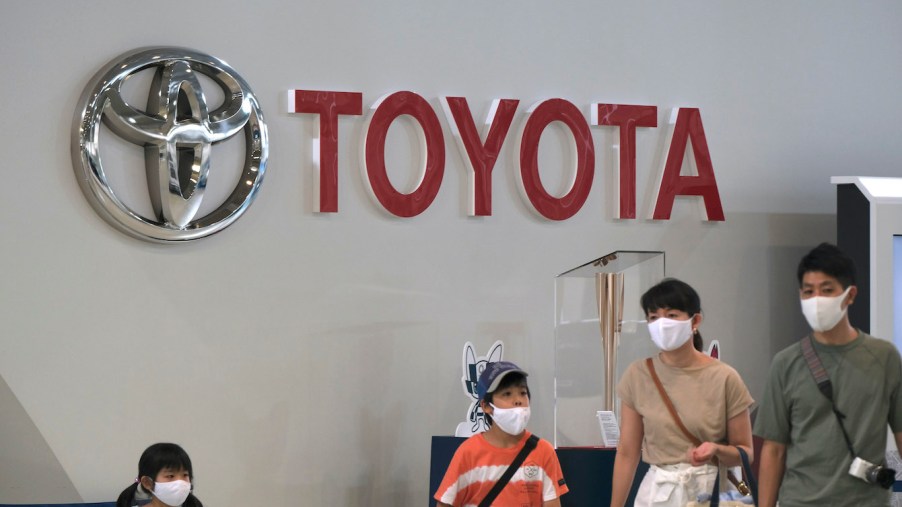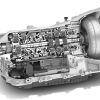
The 2,000,000-Vehicle Toyota & Lexus Fuel Pump Recall Has Turned Into a Lawsuit
No car manufacturer is perfect and with millions of vehicles produced each year, there are bound to be imperfections. But in an effort to ensure safety and keep customers coming back, car companies issue recalls in order to address those imperfections. Unfortunately for the Toyota brand, one giant recall is going come back to haunt them.
Massive safety recall for Toyota and Lexus vehicles
Back in January 2020, the Toyota Motor Company announced a shocking recall across its line of Toyota and Lexus vehicles. According to Car and Driver, Toyota issued a statement in early January that it would be recalling “696,000 cars, crossovers and SUVs including various Lexus models, because of a fuel pump that could stop operating.”
Most of the vehicles included in this recall are 2018-2019 models. The automaker claimed that these affected vehicles could feature a faulty fuel pump, which could stop working and increase the risk of a crash. With an inadequate fuel pump, Toyota and Lexus vehicles could stall and start again or much worse, stall at higher speeds.
How deep does the fuel pump recall go?
As if the 700,000 affected vehicles weren’t enough, in just a few months the world found out that Toyota’s fuel pump issue went much deeper. Toyota told consumers that affected vehicles should receive notice of the recall by March 2020, but when March rolled around, the problem only worsened.
According to a report by USA Today, in early March, Toyota added “1.2 million vehicles to a major recall in the U.S. to fix possible fuel pump failures that can cause engines to stall.” Toyota claimed that it discovered issues with certain DENSO-made fuel pumps and parts, which was used across a wider range of vehicles.
By adding this substantial 1.2 million vehicles to the list, the recall now affects nearly an astronomical 2 million Toyota and Lexus vehicles.
The total list of possible affected vehicles now includes:
- 2018-2019 Toyota Avalon, Camry, Corolla, Highlander, Sequoia, Tacoma, and Tundra
- 2018-2019 Lexus ES 350, GS350, IS 300, IS 350, LC 500, LC 500h, LS 500, LS 500h, RC 300, RC 350, RX 350L
- 2013-2015 Lexus LS 460
- 2013-2014 Lexus GS 350
- 2014 Toyota FJ Cruiser and Lexus IS-F
- 2014-2015 4Runner, Land Cruiser, and Lexus GX 460, IS 350, and LX 570
- 2015 Lexus NX 200t and RC 350
- 2017 Lexus IS 200t and RC 200t
- 2017-2019 Sienna and Lexus RX 350
- 2018 Lexus GS 300
Toyota’s response and why it earned the brand a class-action lawsuit
The sheer number of vehicles affected by the recall is forcing many to question how the Toyota Motor Company could produce so many vehicles with bad fuel pumps. And the brand’s response, or lack thereof, has led to a class-action lawsuit by unhappy consumers.
According to Car Complaints, a class-action lawsuit against Toyota has been filed in the U.S. District Court of Pennsylvania by plaintiffs that claim “Toyota refuses to repair or replace the fuel pumps and continues to require owners to drive vehicles with faulty DENSO fuel pumps.”
The lawsuit claims that owners are unable to get their fuel pumps fixed but also accuses the Japanese automaker of having prior knowledge of the problem. In fact, the additional 1.2 million vehicles added in March came on the heels of another lawsuit which claimed that Toyota was purposely leaving out affected vehicles on the recall list. Adding to the fire is the allegation that DENSO, which manufactured the fuel pump, “allegedly knew in 2015 about the defective fuel pumps, because of statements in a 2016 patent application.”
The newest class-action lawsuit against the Toyota Motor Company seeks to prove that it is knowingly allowing consumers to drive unsafe cars. With all the factors considered, is Toyota doing its best to correct its errors or just trying to hide them?


